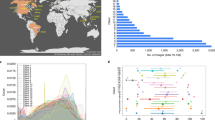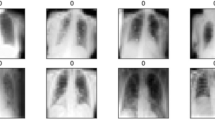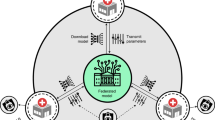Abstract
The study investigates the use of Federated Learning (FL) in combination with the AlexNet architecture for the early confirmation of COVID-19 from chest radiography data. A thorough literature review highlights the potential of FL in healthcare and its application in COVID-19 detection, emphasizing privacy preservation and data security. The methodology involves collecting and 80% preprocessing a diverse dataset, partitioning the data among multiple clients, and iteratively training a global model. Experimental results demonstrate the effectiveness of the FL-based AlexNet model, achieving a high accuracy of 92% on a test dataset. Future research should focus on expanding datasets, exploring advanced privacy techniques, optimizing and scaling FL models, developing real-time applications, and integrating FL models with other modalities for improved COVID-19 detection. These advancements can contribute to early detection and diagnosis, supporting healthcare professionals in combating the pandemic.
Access this chapter
Tax calculation will be finalised at checkout
Purchases are for personal use only
Similar content being viewed by others
References
Chowdhury, D., et al.: Federated learning based Covid-19 detection. Expert Syst. 40(5), e13173 (2023). https://doi.org/10.1111/exsy.13173. https://onlinelibrary.wiley.com/doi/10.1111/exsy.13173
Darzidehkalani, E., Sijtsema, N.M., van Ooijen, P.M.A.: A comparative study of federated learning models for COVID-19 detection, March 2023. http://arxiv.org/abs/2303.16141, arXiv:2303.16141 [cs, eess]
Durga, R., Poovammal, E.: FLED-block: federated learning ensembled deep learning blockchain model for COVID-19 prediction. Front. Public Health 10, 892499 (2022). https://doi.org/10.3389/fpubh.2022.892499. https://www.frontiersin.org/articles/10.3389/fpubh.2022.892499/full
Feki, I., Ammar, S., Kessentini, Y., Muhammad, K.: Federated learning for COVID-19 screening from Chest X-ray images. Appl. Soft Comput. 106, 107330 (2021). https://doi.org/10.1016/j.asoc.2021.107330. https://linkinghub.elsevier.com/retrieve/pii/S1568494621002532
Kandati, D.R., Gadekallu, T.R.: Genetic clustered federated learning for COVID-19 detection. Electronics 11(17), 2714 (2022). https://doi.org/10.3390/electronics11172714. https://www.mdpi.com/2079-9292/11/17/2714
Li, S., Wang, L., Li, J., Yao, Y.: Image classification algorithm based on improved AlexNet. J. Phys. Conf. Ser. 1813, 012051 (2021)
Li, Z., et al.: Integrated CNN and federated learning for COVID-19 detection on chest X-ray images. IEEE/ACM Trans. Comput. Biol. Bioinf., 1–11 (2022). https://doi.org/10.1109/TCBB.2022.3184319. https://ieeexplore.ieee.org/document/9800698/
Lu, M.Y., et al.: Federated learning for computational pathology on gigapixel whole slide images. Med. Image Anal. 76, 102298 (2022). https://doi.org/10.1016/j.media.2021.102298. https://linkinghub.elsevier.com/retrieve/pii/S1361841521003431
Naz, S., Phan, K.T., Chen, Y.P.: A comprehensive review of federated learning for COVID-19 detection. Int. J. Intell. Syst. 37(3), 2371–2392 (2022). https://doi.org/10.1002/int.22777. https://onlinelibrary.wiley.com/doi/10.1002/int.22777
Nguyen, D.C., Ding, M., Pathirana, P.N., Seneviratne, A., Zomaya, A.Y.: Federated learning for COVID-19 detection with generative adversarial networks in edge cloud computing. IEEE Internet Things J. 9(12), 10257–10271 (2022). https://doi.org/10.1109/JIOT.2021.3120998. https://ieeexplore.ieee.org/document/9580478/
Nguyen, D.C., et al.: Federated learning for smart healthcare: a survey. ACM Comput. Surv. 55(3), 1–37 (2023). https://doi.org/10.1145/3501296. https://dl.acm.org/doi/10.1145/3501296
Nilsson, A., Smith, S., Ulm, G., Gustavsson, E., Jirstrand, M.: A performance evaluation of federated learning algorithms. In: Proceedings of the Second Workshop on Distributed Infrastructures for Deep Learning, pp. 1–8 (2018)
Qian, F., Zhang, A.: The value of federated learning during and post-COVID-19. Int. J. Qual. Health Care 33(1), mzab010 (2021). https://doi.org/10.1093/intqhc/mzab010. https://academic.oup.com/intqhc/article/doi/10.1093/intqhc/mzab010/6128587
Sharma, N., Jain, V., Mishra, A.: An analysis of convolutional neural networks for image classification. Procedia Comput. Sci. 132, 377–384 (2018)
Suri, J.S., et al.: Systematic review of artificial intelligence in acute respiratory distress syndrome for Covid-19 lung patients: a biomedical imaging perspective. IEEE J. Biomed. Health Inform. 25(11), 4128–4139 (2021)
Ulhaq, A., Burmeister, O.: COVID-19 imaging data privacy by federated learning design: a theoretical framework, October 2020. http://arxiv.org/abs/2010.06177, arXiv:2010.06177 [cs]
Vaid, A., et al.: Federated learning of electronic health records to improve mortality prediction in hospitalized patients with COVID-19: machine learning approach. JMIR Med. Inform. 9(1), e24207 (2021). https://doi.org/10.2196/24207. http://medinform.jmir.org/2021/1/e24207/
Wibawa, F., Catak, F.O., Kuzlu, M., Sarp, S., Cali, U.: Homomorphic encryption and federated learning based privacy-preserving CNN training: COVID-19 detection use-case. In: EICC 2022: Proceedings of the European Interdisciplinary Cybersecurity Conference, pp. 85–90. ACM, Barcelona, June 2022. https://doi.org/10.1145/3528580.3532845. https://dl.acm.org/doi/10.1145/3528580.3532845
Yang, Q., Zhang, J., Hao, W., Spell, G.P., Carin, L.: FLOP: federated learning on medical datasets using partial networks. In: Proceedings of the 27th ACM SIGKDD Conference on Knowledge Discovery & Data Mining, pp. 3845–3853. ACM, Virtual Event Singapore, August 2021. https://doi.org/10.1145/3447548.3467185. https://dl.acm.org/doi/10.1145/3447548.3467185
Yuan, Z.W., Zhang, J.: Feature extraction and image retrieval based on AlexNet. In: Eighth International Conference on Digital Image Processing (ICDIP 2016), vol. 10033, pp. 65–69. SPIE (2016)
Author information
Authors and Affiliations
Corresponding author
Editor information
Editors and Affiliations
Rights and permissions
Copyright information
© 2024 The Author(s), under exclusive license to Springer Nature Switzerland AG
About this paper
Cite this paper
Dixit, S., Gupta, C.L.P. (2024). Detection of COVID-19 Disease Using Federated Learning. In: Santosh, K., et al. Recent Trends in Image Processing and Pattern Recognition. RTIP2R 2023. Communications in Computer and Information Science, vol 2027. Springer, Cham. https://doi.org/10.1007/978-3-031-53085-2_4
Download citation
DOI: https://doi.org/10.1007/978-3-031-53085-2_4
Published:
Publisher Name: Springer, Cham
Print ISBN: 978-3-031-53084-5
Online ISBN: 978-3-031-53085-2
eBook Packages: Computer ScienceComputer Science (R0)




